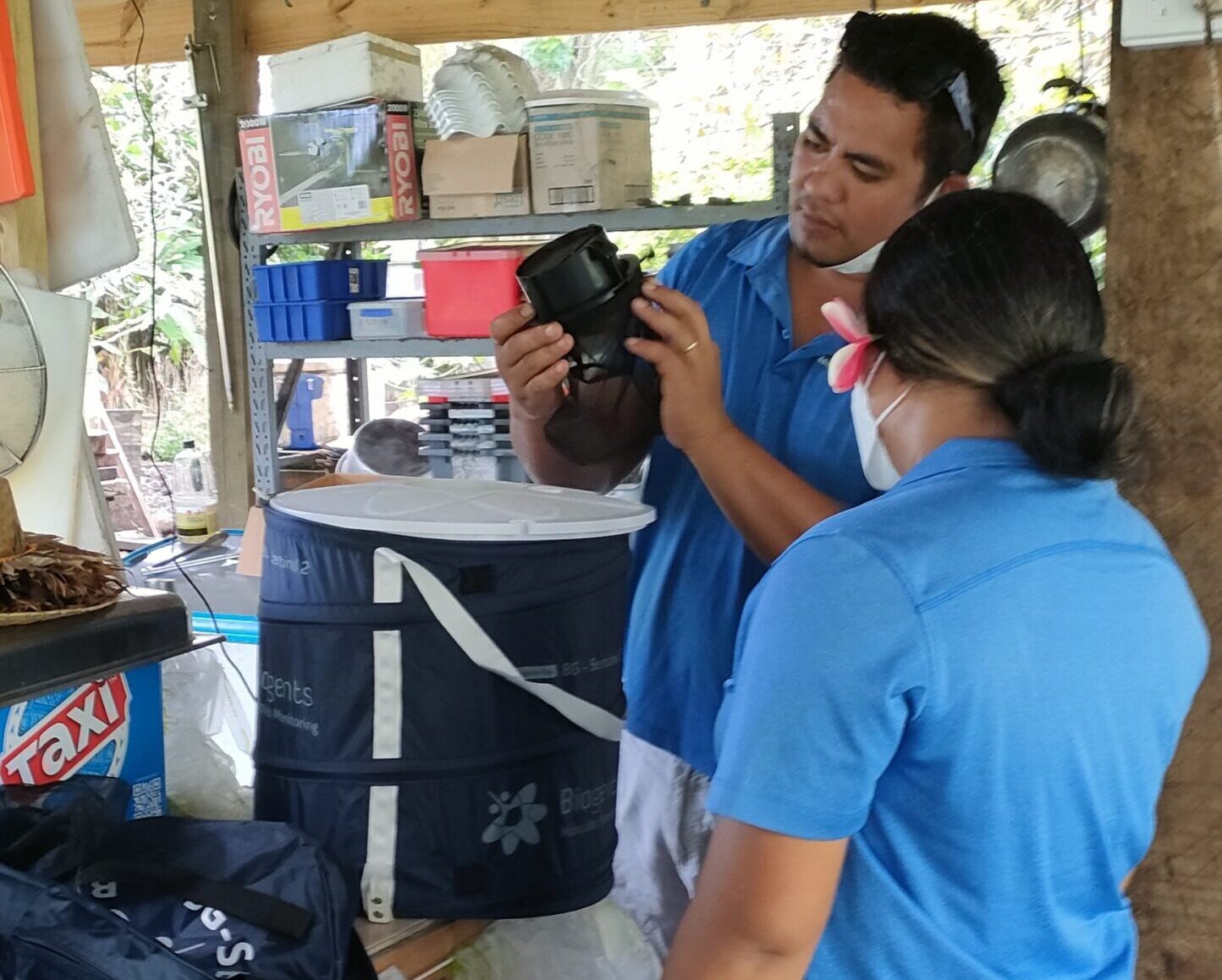Te Marae Ora out to prevent dengue outbreak
Tuesday 10 January 2023 | Written by Losirene Lacanivalu | Published in Health, National

Power operated mosquito traps were placed in and around people’s houses in 2022. Fifty traps were placed along residential areas across the whole island. Photo: SUPPLIED/22051334
Te Marae Ora Ministry of Health (TMO) says it will ensure there are no dengue outbreaks in the Cook Islands following the recent rainy spell.
The ministry has confirmed there have been no suspected, probable or positive dengue cases reported to Public Health since October, 2022.
Significant rainfalls would likely mean more mosquito activities or increase in mosquito breeding places. TMO said they will continue with the larvicide programme around Rarotonga and the Pa Enua this week to destroy these mosquito breeding sites.
However it said the programme depended on the weather, and it would be pushed out if the current rainy spell continued.
The country’s first dengue case was in 2007 and there have been multiple outbreaks since.
It was earlier reported that in 2009 over 1000 people caught the virus.
The outbreak in the first half of 2021 recorded 200 cases.
Speaking on the mosquito eradicating programme launched last year, Secretary of Health Bob Williams said the second phase of the World Mosquito Programme (WMP) under Monash University of Australia and TMO is yet to be confirmed.
Williams said this will include the actual date of the release of Wolbachia – a naturally occurring bacteria that prevents the spread of mosquito-borne diseases.
The programme involves introducing mosquito populations to a bacteria called Wolbachia that prevents the mosquitoes from transmitting dengue, chikungunya, zika and yellow fever.
The programme has also been introduced in Vanuatu, Fiji, Kiribati and New Caledonia.
Meanwhile Te Marae Ora has reemphasised the need to ensure homes including vacant homes/sections be well maintained.
During the last Tutaka programme in December, 2022, health officials noticed mosquito breeding and resting places, improper domestic waste disposal, old motor junks, whiteware waste and e-waste kept in properties, overflow of septic tanks and some houses not kept clean, Williams said.












































